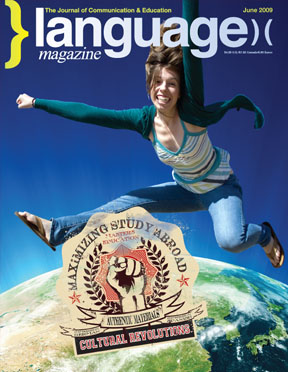All Abroad

During these difficult economic times, the idea of the government spending $800 million to help Americans study abroad may seem unrealistic. However, the benefits of a million Americans traveling abroad every year far outweigh the cost which, when compared to the bailouts, seems like a bargain.
Last month, the Senator Paul Simon Study Abroad Foundation Act was introduced by House Foreign Affairs Committee Chairman Howard Berman (D-Calif.) as part of the Foreign Relations Authorization Act (H.R. 2410). While the authorization bill’s primary purpose is to authorize funding for the operations of the U.S. Department of State, it also includes innovative programs like the Simon legislation that are critical to accomplishing U.S. foreign policy and public diplomacy goals.
The Act proposes the creation of an innovative public-private partnership to dramatically increase the number of American college students who study abroad. It specifically cites the foreign policy challenges facing the U.S. as a central reason for the need to expand Americans’ knowledge of other cultures and foreign languages, and it focuses particular attention on encouraging more students to study abroad in nontraditional destinations, especially in the developing world.
Of particular note is the bill’s provision to extend the privilege of study abroad to those who would not otherwise have been able to afford to take part. Currently, only about one percent of U.S. undergraduates study abroad, despite surveys that indicate that more than three-quarters of Americans believe it is important to do so and the increased consensus among business, education, and government leaders that Americans need to spend more time abroad to improve our engagement and communication with the rest of the world.
Our lack of international understanding has just been exposed by the nation’s knee-jerk reaction to Mexico’s outbreak of the H1N1 virus. Across the country, so-called “shock-jocks” (radio disc jockeys who will say anything to provoke a reaction) were calling for the sealing of the Mexican-American border and the deportation of Mexicans to prevent a pandemic, yet there have been far more confirmed cases of the virus in the U.S. than in Mexico (see World Languages, p.15). Such reactions are nothing new — we’ve already had Bird Flu and the Asian Flu, and nearly 100 years ago we had Spanish Flu. All nationalities fear the unknown, which leads to the scapegoating of foreigners, but that does not mean that we should accept such behavior.
We need to do all we can to reduce all types of prejudice and stereotyping, be it based on race, nationality, or any other random formula, and making the experience of studying abroad more readily available is one of the best ways of overcoming such tendencies to generalize.
Through travel, we are obliged to confront our own prejudices, and international experience gives us the tools with which we can dismantle them. Making this opportunity available to students regardless of their income level will create a legacy of tolerance and understanding. Let your representatives know that you want to encourage widespread participation in study abroad programs through their support of the Simon Act.
IN THIS ISSUE:
Going Deutsch
Kate Sommers-Dawes explores destinations in which to learn the language of Goethe
Two Sides of Spain
Kate Sommers-Dawes faces the dilemma of choosing between studying Spanish surrounded by the chic dynamism of Barcelona and the alluring mystery of Andalucía
Educating The Educator
Language Magazine presents the first in a series of features outlining training options for teachers
Maximizing Study Abroad
Andrew D. Cohen explains how to make the most of immersion programs through strategizing about language and culture
Keeping It Real
Pat Guiney advocates the use of authentic content in the language classroom
Cultural Revolutions
Bernadette Musetti explores how the Seven Revolutions can globalize language classrooms
Plus all the latest news in language learning technology, book reviews, and source information on language funding






